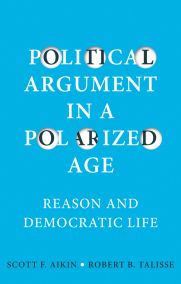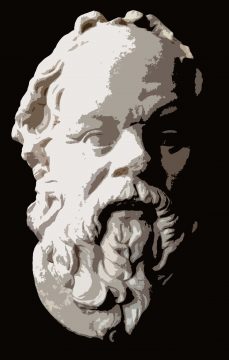by Gautam Pemmaraju
On a recent television panel discussion show, the BJP leader and senior advocate Mahesh Jethmalani, in response to how the nation should respond to periodic terrorist attacks, said, unsurprisingly: “why can't we be like America?”. He also said that India should “stop comparing ourselves to Pakistan” in terms of terror attacks, for Pakistan, “is a failed state”. Again, this too is unsurprising. His comments followed those of film actor/activist and former Rajya Sabha MP Shabana Azmi, who, pointing to the fact that ‘not a single’ terror attack has taken place on American soil since 9-11, said “America dikha diya ke nahin?” or “hasn’t America shown the way?” Writer/Journalist Naresh Fernandes, also on the panel, in response to Mahesh Jethmalani, was quick to point out the obvious – America was “deeply embedded in two wars”, had perpetrated countless violations of civil rights, infringed/abridged speech unlawfully, tortured innocents, espoused dangerously divisive rhetoric, flagrantly contravened international law, amongst many other profoundly problematic transgressions in their response to 9-11.
 While it is clear that both Azmi and Jethmalani were referring to securing India’s safety and escalating vigilance, the pointed invocation of America presents an opportunity to discursively examine how the desire to ‘be like America’ is imagined and expressed. It is mostly a desire for parity, which is increasingly evident in many aspects of public life and discourse, and runs alongside a disregard of regional aspirations of neighbouring nations, particularly Pakistan’s. Beleaguered as Pakistan may be in several ways, competitive nationalism comes into play, on both sides, and India to many, has the upper hand presently. While we have ‘arrived’ and are ‘poised’ for greater things, they, the popular narrative runs, have ‘failed’. The disregard is not exclusively reserved for our neighbours, but is also generously cast inward upon our own laws, the common people at large, and in specific on minorities, the poor, the disenfranchised, and the marginal. Consumerist desires aside, what seem further entrenched are disturbing predatory practices in many aspects of socio-economic activity, particularly in areas where government regulation is critical. Be it rural/tribal land acquisition, health, education, food production, housing, water resources, we see today not just highly questionable activities, but downright criminal ones as well.
While it is clear that both Azmi and Jethmalani were referring to securing India’s safety and escalating vigilance, the pointed invocation of America presents an opportunity to discursively examine how the desire to ‘be like America’ is imagined and expressed. It is mostly a desire for parity, which is increasingly evident in many aspects of public life and discourse, and runs alongside a disregard of regional aspirations of neighbouring nations, particularly Pakistan’s. Beleaguered as Pakistan may be in several ways, competitive nationalism comes into play, on both sides, and India to many, has the upper hand presently. While we have ‘arrived’ and are ‘poised’ for greater things, they, the popular narrative runs, have ‘failed’. The disregard is not exclusively reserved for our neighbours, but is also generously cast inward upon our own laws, the common people at large, and in specific on minorities, the poor, the disenfranchised, and the marginal. Consumerist desires aside, what seem further entrenched are disturbing predatory practices in many aspects of socio-economic activity, particularly in areas where government regulation is critical. Be it rural/tribal land acquisition, health, education, food production, housing, water resources, we see today not just highly questionable activities, but downright criminal ones as well.
So what does it mean for India to ‘be like America’ – semiotically charged as the phrase is? Should we ‘be like America’? Are there positive lessons to be learnt, portents and cautions that need be judiciously considered, institutions, ideas and processes that may be adopted? Or is it to be an unfalteringly foot-stomping ahead on to being a ‘superpower’?
Read more »
 I’m not sure what Americans were like in the 18th and 19th century, but they have to have been a lot tougher, less whining, less self-important and paradoxically more exceptional without thinking they were exceptional than Americans of today.
I’m not sure what Americans were like in the 18th and 19th century, but they have to have been a lot tougher, less whining, less self-important and paradoxically more exceptional without thinking they were exceptional than Americans of today.
 In the game of chess, there are dramatic moves such as when a knight puts the king in check while at the same time attacking the queen from the same square. Such a move is called a fork, and it’s always a delicious feeling to watch your opponent purse his lips and shake his head when you manage a good fork. The most dramatic move is obviously checkmate, when you capture the king, hide your delight, and put the pieces back in the box. But getting to either the fork or checkmate involves what’s known in chess as positioning, and for the masters, often involves quiet moves long in advance of the victory.
In the game of chess, there are dramatic moves such as when a knight puts the king in check while at the same time attacking the queen from the same square. Such a move is called a fork, and it’s always a delicious feeling to watch your opponent purse his lips and shake his head when you manage a good fork. The most dramatic move is obviously checkmate, when you capture the king, hide your delight, and put the pieces back in the box. But getting to either the fork or checkmate involves what’s known in chess as positioning, and for the masters, often involves quiet moves long in advance of the victory.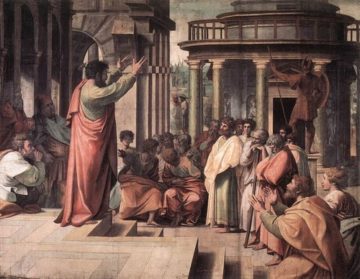

 Where I live in Colorado there are unstable elements of the landscape that sometimes fail. In severe cases, millions of tons of rock, silt, sand, and mud can shift, leading to massive landslides. The signs aren’t always evident because the breakdown in the structural geology often happens quietly underground. The invisible changes can take hundreds or thousands of years, but when a landslide takes place, it is fast and violent. And the new landscape that comes after is unrecognizable.
Where I live in Colorado there are unstable elements of the landscape that sometimes fail. In severe cases, millions of tons of rock, silt, sand, and mud can shift, leading to massive landslides. The signs aren’t always evident because the breakdown in the structural geology often happens quietly underground. The invisible changes can take hundreds or thousands of years, but when a landslide takes place, it is fast and violent. And the new landscape that comes after is unrecognizable.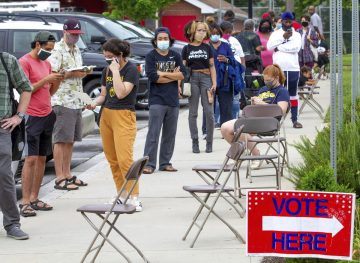
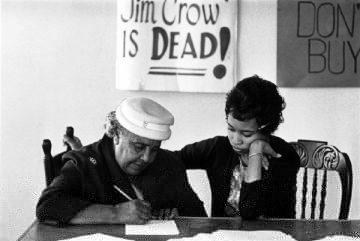 In the presidential election of 2016, around 45% of adult eligible to vote in the USA did not vote. It isn’t disputed that voter suppression, disproportionately affecting people of colour, was one of the causes. Another seems to be a cynicism, or apathy about the process itself. And there may be other reasons. But however you look at it, a situation in which nearly half of the eligible population doesn’t vote in an election for the highest office in the land ought to be causing a good deal of alarm, and not just for those political actors who reckon to be most damaged by this blank statistic. But then, ‘democracy’ has always been rather more of an unfulfilled promise than an accomplished fact, even in the Land of the Free (as well as in the land that boasts the ‘Mother of Parliaments’, where I live).
In the presidential election of 2016, around 45% of adult eligible to vote in the USA did not vote. It isn’t disputed that voter suppression, disproportionately affecting people of colour, was one of the causes. Another seems to be a cynicism, or apathy about the process itself. And there may be other reasons. But however you look at it, a situation in which nearly half of the eligible population doesn’t vote in an election for the highest office in the land ought to be causing a good deal of alarm, and not just for those political actors who reckon to be most damaged by this blank statistic. But then, ‘democracy’ has always been rather more of an unfulfilled promise than an accomplished fact, even in the Land of the Free (as well as in the land that boasts the ‘Mother of Parliaments’, where I live). Some people whose political views are liberal and progressive say they will not vote in the 2020 US election. They detest Donald Trump and his Republican enablers like senate leader Mitch McConnell; they oppose Trump’s policies on most issues–the environment, immigration, health care, voting rights, police brutality, gun control, etc.; but they still say they won’t vote. Why not?
Some people whose political views are liberal and progressive say they will not vote in the 2020 US election. They detest Donald Trump and his Republican enablers like senate leader Mitch McConnell; they oppose Trump’s policies on most issues–the environment, immigration, health care, voting rights, police brutality, gun control, etc.; but they still say they won’t vote. Why not? America is a truck rolling down a hill towards a cliff. The downhill slope is the erosion of democratic norms; the cliff is the point where anti-democratic forces become powerful enough to crush democratic opposition by authoritarian means. The re-election of Donald Trump would very likely see the country sail over that cliff.
America is a truck rolling down a hill towards a cliff. The downhill slope is the erosion of democratic norms; the cliff is the point where anti-democratic forces become powerful enough to crush democratic opposition by authoritarian means. The re-election of Donald Trump would very likely see the country sail over that cliff.
